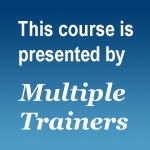

NVC Resources on Empathy
-
Explore how NVC and the Enneagram deepen understanding of personality and foster connection.
-
Jori and Jim Manske offer a process they call "The Zero Step," encompassing the characteristics of warmth toward self and other, care for the vitality of both yourself and other(s), wonder/interest, vulnerability and empathy, which leads directly to connection requests and an openness to outcome.
-
Amidst racial violence, there are things that NVC can offer. And there are places where NVC culture needs to be more vigilant. Here are examples of where, amidst incredible loss and pain, "allies" and communities commonly (and often unknowingly) create false equivalences, minimization and re-injure those who've been historically marginalized -- even when they offer empathy, or aim to stay "safe". Read on to cultivate greater understanding and ways to respond differently.
-
Rediscover ease and joy in love by transforming how you perceive, receive and embody connection.
-
Challenge racism with compassion and clarity, gain tools to foster reflection and systemic change.
-
Bring NVC beyond personal growth, explore perspectives that transform how we respond to crisis.
-
Here are five practical ideas for creating simple agreements with a group when conflict arises.
-
In times of conflict, it’s easy to lose touch with ourselves and our needs. In this heartfelt session, Jesse Wiens Chu shares three practical centering practices—rooted in the principles of Nonviolent Communication (NVC)—to help you find your way back to self-connection, empathy, and choice.
-
See how to better connect with children’s needs, especially when they resist or react to requests.
-
Explore and embrace your true self in this gentle journey toward authentic self-love.

Quick Links
Subscription Preferences
Stay In Touch!
Looking for ways to keep up with NVC Academy news, get special offers, free resources, or words of inspiration? Here are five ways to stay engaged:










